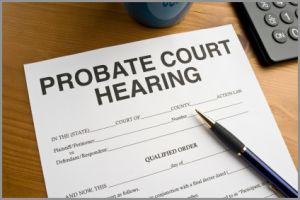What Is Probate?

Estate Administration
Probate is the legal process of estate administration. When you create a last will, you name an executor who will be charged with the estate administration tasks. The executor handles the business of the estate, but the overall administration is supervised by the probate court.
During the process the court must determine the validity of the will. It is possible to come forward to contest a will, and the probate court would hear arguments if there was a will challenge.
Assuming the will is deemed to be valid by the court, the executor must undertake the estate administration tasks during the process of probate.
Final bills must be paid, and this will include tax responsibilities. Ultimately the executor will prepare the estate’s assets for distribution to the heirs that are named in the last will.
Probate Pitfalls
Probate is a process that is in place to provide certain protections, but it does come with a number of pitfalls. Time consumption is at the top of the list.
In the simplest of cases, an estate can be probated in several weeks. However, complex cases can be stalled in probate for multiple years.
In addition to the time consumption, probate can be expensive. There are numerous different costs that can accumulate during the process, including the executor’s remuneration, court costs, attorney fees, accounting expenses, appraisal charges, and liquidation costs.
A third drawback that you get with probate is the loss of privacy. As you go through life, you probably do not make your financial decisions public. However, your final affairs are an open book when your estate passes through probate, because probate records are available to the general public.
Avoiding Probate
It is possible to take steps to arrange for future asset transfers outside of the process of probate. There are a number of different ways that you can avoid probate, and the optimal choice will vary depending on the circumstances.
One very commonly used probate avoidance tool is the revocable living trust. When you convey assets into the trust, you do not lose control while you are living. You can act as the trustee and the beneficiary at first.
After you die, the successor trustee that you name in the trust agreement can distribute assets to the successor beneficiaries outside of the process of probate.
Learn More About Probate
If you would like to learn more about probate, download our in-depth report. This report is being offered free of charge, and you can obtain access through this link: Dallas TX Probate.
